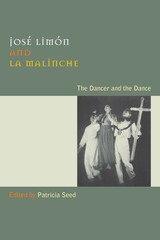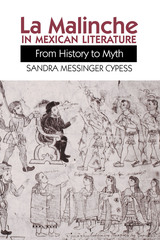
José Limón (1908-1972) was one of the leading figures of modern dance in the twentieth century. Hailed by the New York Times as "the finest male dancer of his time" when the José Limón Dance Company debuted in 1947, Limón was also a renowned choreographer who won two Dance Magazine Awards and a Capezio Dance Award, two of dance's highest honors. In addition to directing his own dance company, Limón served as artistic director of the Lincoln Center's American Dance Theater and also taught choreography at the Juilliard School for many years.
In this volume, scholars and artists from fields as diverse as dance history, art history, Mesoamerican ethnohistory, Mexican American studies, music studies, and Mexican history come together to explore one of José Limón's masterworks, the ballet La Malinche. Offering many points of entry into the dance, they examine La Malinche from various angles, such as Limón's life story and the influence of his Mexican heritage on his work, an analysis of the dance itself, the musical score composed by Norman Lloyd, the visual elements of props and costumes, the history and myth of La Malinche (the indigenous woman who served the Spanish conquistador Hernán Cortés as interpreter and mistress), La Malinche's continuing presence in Mexican American culture, and issues involved in a modern restaging of the dance.
Also included in the book is a DVD written and directed by Patricia Harrington Delaney that presents the ballet in its entirety, accompanied by expert commentary that sets La Malinche within its artistic and historical context.

Of all the historical characters known from the time of the Spanish conquest of the New World, none has proved more pervasive or controversial than that of the Indian interpreter, guide, mistress, and confidante of Hernán Cortés, Doña Marina—La Malinche—Malintzin. The mother of Cortés's son, she becomes not only the mother of the mestizo but also the Mexican Eve, the symbol of national betrayal.
Very little documented evidence is available about Doña Marina. This is the first serious study tracing La Malinche in texts from the conquest period to the present day. It is also the first study to delineate the transformation of this historical figure into a literary sign with multiple manifestations.
Cypess includes such seldom analyzed texts as Ireneo Paz's Amor y suplicio and Doña Marina, as well as new readings of well-known texts like Octavio Paz's El laberinto de la soledad. Using a feminist perspective, she convincingly demonstrates how the literary depiction and presentation of La Malinche is tied to the political agenda of the moment. She also shows how the symbol of La Malinche has changed over time through the impact of sociopolitical events on the literary expression.
READERS
Browse our collection.
PUBLISHERS
See BiblioVault's publisher services.
STUDENT SERVICES
Files for college accessibility offices.
UChicago Accessibility Resources
home | accessibility | search | about | contact us
BiblioVault ® 2001 - 2024
The University of Chicago Press









